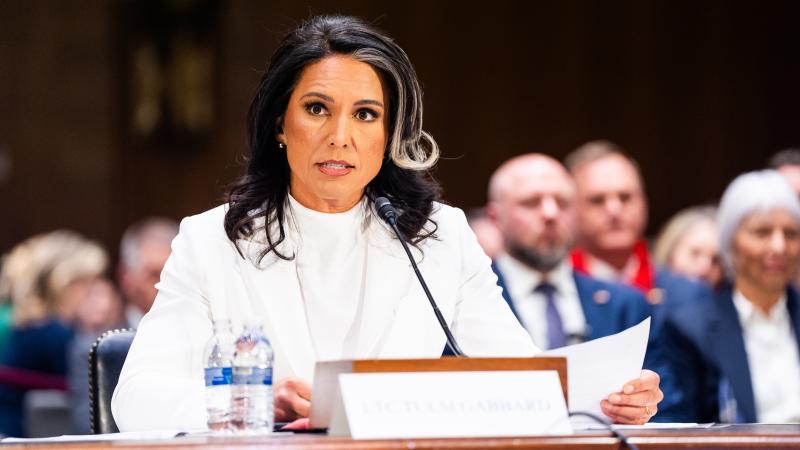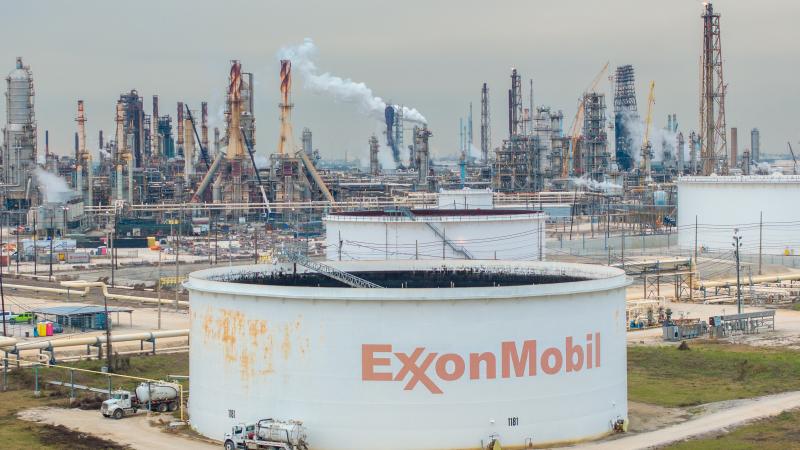FEMA fumbles oversight of PPE shipments, incurring $238M in questionable costs: watchdog
Moving from conception to implementation in one week, disaster relief agency's Project Airbridge failed to assess both PPE inventories at medical supply distributors and the capacity of their supply chains, DHS inspector general found.
The Golden Horseshoe is a weekly designation from Just The News intended to highlight egregious examples of wasteful taxpayer spending by the government. The award is named for the horseshoe-shaped toilet seats for military airplanes that cost the Pentagon a whopping $640 each back in the 1980s.
FEMA spent $238 million to transport personal protective equipment (PPE) from overseas to the U.S. during the COVID-19 pandemic, but due to inadequate oversight the agency delivered unnecessary supplies to medical supply distributors while also failing to insure supplies reached healthcare facilities that needed them most, according to a new federal audit report.
"Although Project Airbridge was a potential solution to address concerns about insufficient PPE during an unprecedented pandemic, FEMA did not provide sufficient oversight of Project Airbridge, which expended approximately $238 million to transport about 1.1 billion PPE items to the United States," according to the report by the Department of Homeland Security Office of Inspector General.
"FEMA paid to transport PPE that may not have been necessary to meet distributors' needs and was not always delivered to locations most in need," according to the Feb. 7 report.
The "project's $238 million may have been better spent on other COVID-19 initiatives," the OIG concluded.
Moving from conception to implementation in one week, Project Airbridge failed to assess both the inventories of PPE at medical supply distributors and the capacity of their supply chains, the auditors determined.
"We attribute Project Airbridge's unnecessary air shipment of PPE to the pressure FEMA faced to get medical supplies distributed quickly," the OIG reported. "With a limited understanding of commercial supply and demand, FEMA did not sufficiently assess whether medical supply distributors needed Project Airbridge to stabilize their supply chains."
Indeed, the project "actually supplemented the distributors' already large domestic inventories," the watchdog found.
FEMA failed, moreover, to oversee the distributors' deliveries, which were 15% lower than what was agreed upon, the audit learned.
FEMA covered the cost to fly supplies to medical supply distributors. Under agreements with the distributors, 50% of the supplies were to be sent on to healthcare facilities with the most critical needs.
Yet, FEMA did not "ensure the distributors delivered PPE to healthcare facilities as agreed," the auditors reported. "Specifically, we could only confirm distributors delivered 35 percent of the Airbridge PPE to designated healthcare facilities in prioritized locations instead of the 50 percent minimum requirement."
One FEMA official told the inspector general the agency was establishing "processes throughout the project's life," which the official described as "building the plane while it was flying."
Although COVID-19 was "the first national pandemic response led by FEMA since its inception" and the agency had an obligation "to develop novel approaches to address potential PPE supply shortages at healthcare facilities throughout the United States," FEMA still had "a responsibility to spend funds on verified needs," the OIG concluded.
"Although airlift initiatives move items quickly, they are not justified when inventory growth exceeds distribution rates," the audit report explained. "During Project Airbridge, the distributors' supply chains were functioning, they had significant PPE inventories, and they imported more PPE than Project Airbridge. FEMA should have implemented better controls to assess and adjust operations based on distributors' inventories and supply lines, but it did not. Additionally, Project Airbridge appears to have had little impact in reducing critical PPE shortages for healthcare workers who needed supplies most. Only one of the six distributors satisfied the MOA minimum 50 percent compliance requirement of total shipments. Thus, the project’s $238 million may have been better spent on other COVID-19 initiatives. FEMA should leverage lessons learned from this audit when contemplating and undertaking future private-government partnerships."
The inspector general made two recommendations to improve the agency's management and oversight in future public/private partnerships, and FEMA concurred with both.
















